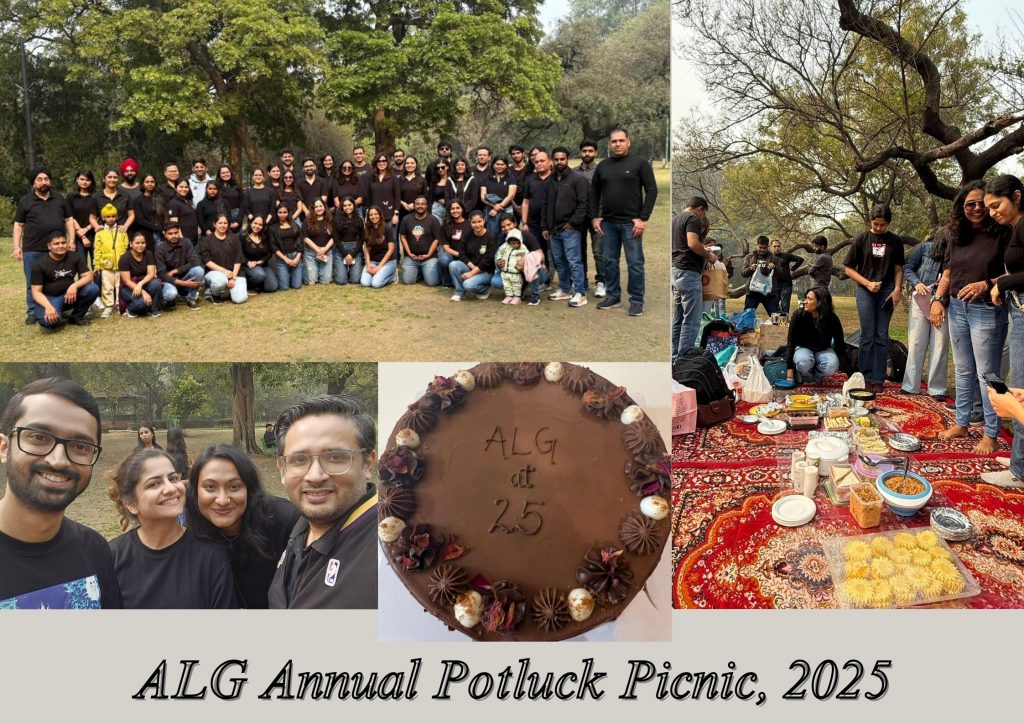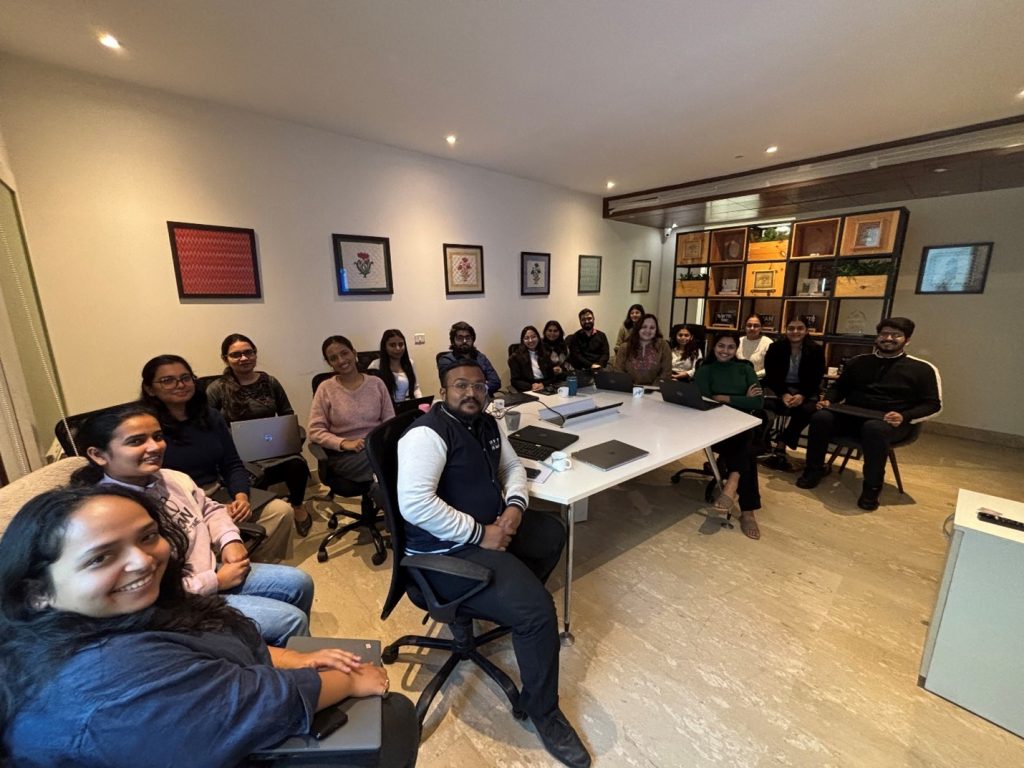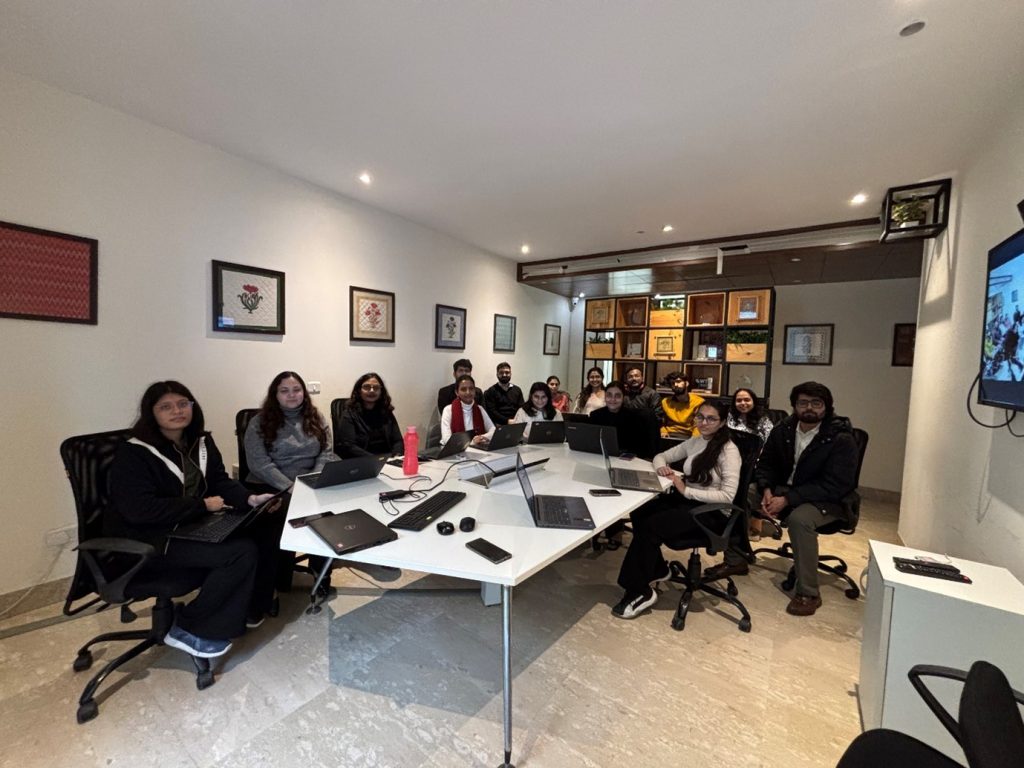This year’s ALG Potluck Picnic at Lodhi Garden was a truly special gathering, bringing together colleagues and their families for a day of joy, laughter, and celebration. From engaging games to a delightful spread of homemade delicacies, every moment was filled with warmth and camaraderie. Having our colleagues’ families join the festivities made the event even more special, reinforcing the strong sense of community that defines ALG.
The occasion was even more meaningful as we marked ALG’s 25th Foundation Day, a testament to our journey of excellence and growth.
Adding to the celebration, we proudly welcomed our trainee associates into their new roles as Associates.
Here’s to many more years of shared success, milestones, and togetherness!




